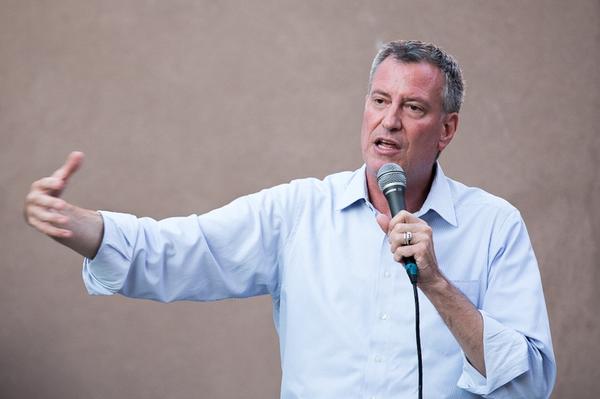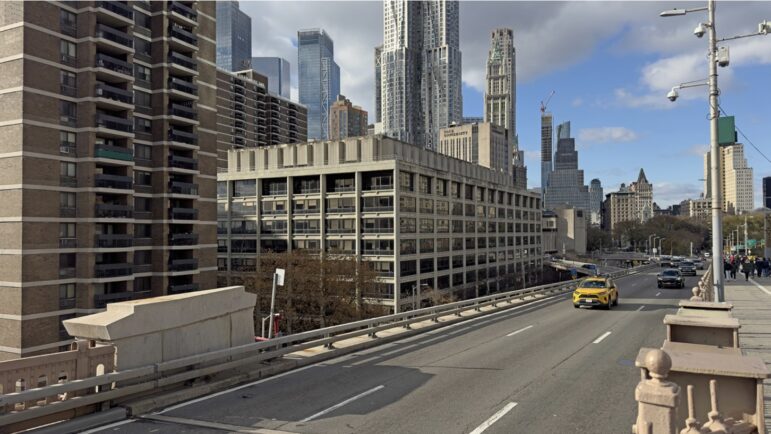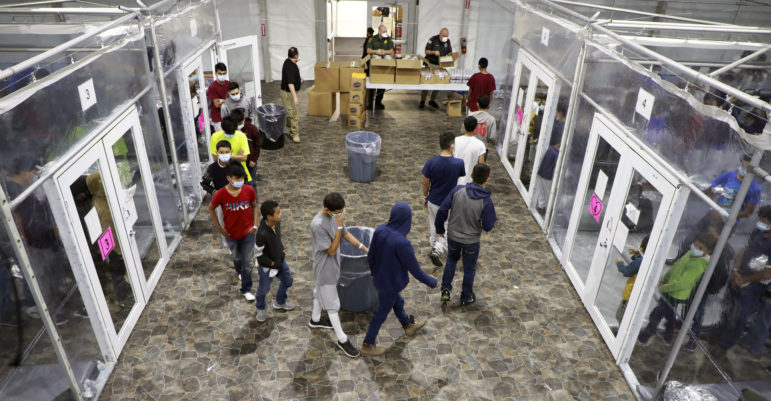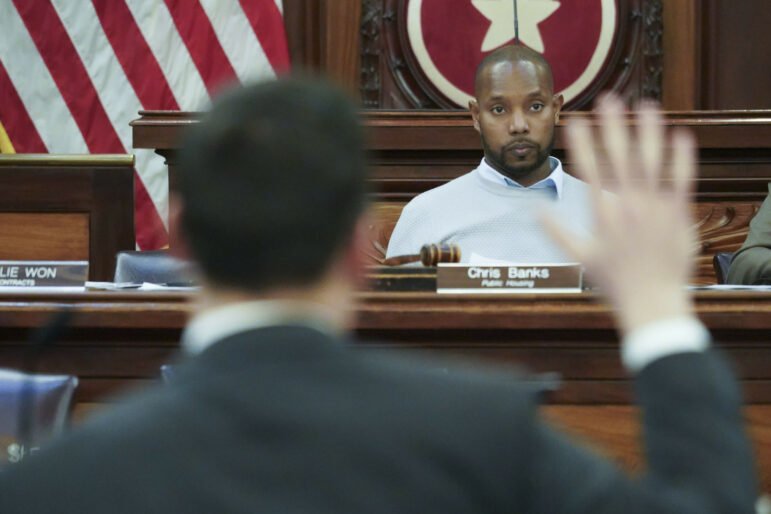
Photo by: Karla Ann Cote
Bill de Blasio received the most campaign money from Brooklyn donors, topping five other citywide candidates (Sal Albanese, Letitia James, Daniel Squadron, Bill Thompson and Anthony Weiner) with Brooklyn homes or roots.
Most New Yorkers have already closed the book on campaign 2013, but for the numbers crunchers over at the Campaign Finance Board the task of tracking every last dollar of contributions and expenditures will drag on for many months. The audit of Mayor Bloomberg’s 2009 campaign wasn’t released until October 2012, nearly three years after the ’09 vote.
The CFB’s final reports will deliver essential details, but a cruder view is already available via the Board’s online database. In an election dominated by candidates from Kings County, it’s not too early to ask who gave and got the most.
Races for city council, borough president, comptroller, public advocate and mayor attracted $106 million in the 2013 cycle. Just over $92 million of that went to candidates; the rest was absorbed by PACs like Jobs for New York, representing the real-estate industry, and United for the Future, linked to the teachers’ union.
About three quarters of the contributions came from donors who listed addresses in the five boroughs, and 13 percent of that money (some $10 million) came from Brooklyn. Roughly 75 percent of the Brooklyn money came in donations of $250 or larger.
Looking at that pool of larger Brooklyn donations, which donors, employers, intermediaries and candidates were the biggest players in the Kings County money race?
Top candidates and donors
The top recipient, no surprise, was the mayor-elect, who hails from Park Slope. His rivals Bill Thompson and Anthony Weiner also appeared to benefit from their Brooklyn roots. The rest of the top 10 includes the Jobs for New York PAC.
The list of top donors is headed by two firms linked to Two Trees Management, the development company run by the Walentas family. Each firm wrote just one check, for $125,000, to Jobs for New York.
Alexander Rovt, whose wife Olga also made the top 10, is a billionaire fertilizer trader who has often donated heavily in city races ($13,500 in 2001 and $19,200 in 2005) but this year kicked into a higher gear in his support, as both a donor and an intermediary (see next chart) to de Blasio, Weiner and Scott Stringer.
The Working Families Organization is a nonprofit advocacy entity connected with the Working Families Party. It made its donations to CVH Power, a PAC affiliated with the community organization Community Voices Heard that raised more than $150,000 but spent only $6,451 in support of a single candidate: Councilwoman and Speaker hopeful Melissa Mark-Viverito.
The Council of School Supervisors is the union for the city’s principals, assistant principals and other school administrators; they showered cash on many candidates. So did the Gindis, who are the owners of the Century 21 stores and were particularly generous to Weiner, Stringer and Squadron. Red Horse Strategies is a political consultancy that made the top 10 because of two massive checks to the Uniformed Firefighters’ PAC.
Employers and intermediaries
Campaign donors are supposed to identify their employer, and most do, although the self-employed, unemployed, retired and people identifying as “housewives” are usually associated with more money than any single firm.
Among donors who did identify a firm, Century 21 workers (mainly the Gindis) and officers donated the most from Brooklyn, followed by Rovt and others associated with IBE Trade Corp. No. 3, Meridian Capital Group, is a commercial mortgage broker. Jerome Belson, ranked fourth, is a lawyer who gave Republican mayoral candidate George McDonald an over-the-limit $40,000 donation as part of McDonald’s protest against campaign finance laws.
United American Land and Midtown Equities are real-estate development firms. Broadway Stages is a film production firm that, according to its website, has worked with shows like Blue Bloods, Smash and The Good Wife.
When it comes to intermediaries (a.k.a. bundlers or fundraisers), Rovt tops the list, gathering contributions worth $93,120 for Stringer, Weiner and de Blasio. The No. 2 bundler, Herman Friedman, is co-founder and president of BluPax Pharma, a Jersey-based firm that sells generic medicine. Michael Hidary is the younger brother of independent mayoral candidate Jack Hidary but actually did his bundling for Christine Quinn before Jack entered the race.
Evgeny Freidman, a taxi fleet owner, gathered donations for de Blasio and Councilmember Daniel Garodnick. Schloime Dachs, a singer of some note in the Orthodox community, raised money for Quinn. Morris Missry, a Weiner bundler, is a lawyer whose clients include Thor Equities and Crown Acquisitions.
Goldfeder lists his occupation as “campaign manager” for State Sen. Simcha Felder. He raised money for Ari Hoffnung, who never ended up running for City Council in the Bronx.
David Belt is a developer who raised money for Quinn. David Greenfield, now a City Councilmember, in his earlier life as executive director of the Sephardic Community Federation directed donations to Weiner. Sally Susman, a vice president at Pfizer, was a fundraiser for Quinn.
CFB gets grief
In the aftermath of the 2013 race, the CFB faces more than a long to-do list of audits. The Board is in critics’ crosshairs for its decision to deny matching funds to John Liu, effectively torpedoing his campaign. At a conference on the 2013 race on Wednesday, the CFB was taken to task for the Liu decision, freezing Bill Thompson’s ability to spend runoff money during the days when such a race was theoretically possible, and the spending limits it imposes—which Republicans say make it impossible for GOP candidates to win in a town where Democrats can count on get-out-the-vote help from unions and other organizations.
The irony is, after three straight cycles in which a self-financed billionaire candidate drowned out the publicly financed system, the 2013 race was when things were supposed to get back to normal for the CFB.
After all, the total amount of money raised by all the dozens candidates in the 2013 races didn’t match what Mayor Bloomberg alone dished out in 2009 to win his third term. And one clear effect of that absence from this year’s race of the large checks from East 79th Street is that Brooklyn money played a bigger role.








